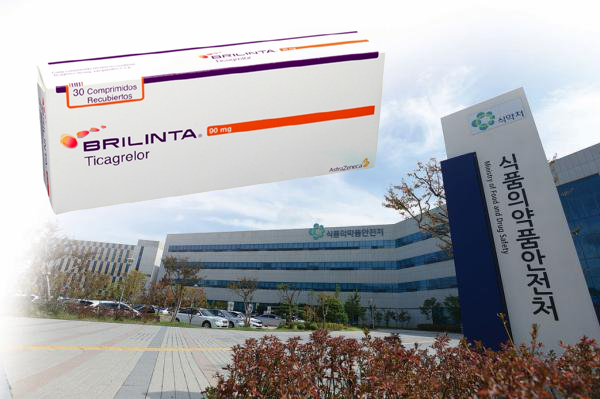AstraZeneca said it would conduct a clinical trial on a combination of the antiplatelet drug, Brilinta (ingredient: ticagrelor) and Aspirin (ingredient: acetylsalicylic acid), to check whether the combo is effective to prevent a stroke and death.

The Ministry of Food and Drug Safety recently gave the green light to the drugmaker for a phase-3 clinical trial, comparing the Brilinta-Aspirin combo with a single therapy of Aspirin.
The study will be on patients suffering from acute ischaemic stroke or transient ischaemic attack, testing the efficacy and safety of the combination of ticagrelor and acetylsalicylic acid (ASA) in comparison with the ASA therapy.
According to AstraZeneca Korea, the trial named “THALES” will be on 13,000 patients around the world for about two years. In Korea, it will be tested on 300 patients at Soon Chun Hyang University Hospital and Seoul National University Bundang Hospital.
Arriving at the local market in 2013, Brilinta drew attention by lowering death rate without increased major bleeding, in comparison to the representative antiplatelet drug Plavix (ingredient: clopidogrel).
In the PLATO clinical trial on 18,624 patients with an acute coronary syndrome in 43 countries, Brilinta as compared with clopidogrel significantly reduced the risk of death from vascular causes, myocardial infarction, and stroke by 16 percent. Brilinta also effectively reduced the risk of death from vascular causes by 21 percent.
Brilinta can be used with Aspirin for patients having an acute coronary syndrome or those with a high risk of thrombotic cardiovascular events who had a history of myocardial infarction at least a year before.
According to PEGASUS-TIMI 54 study announced in 2015, the long-term use of Brilinta 60mg in parallel with low-dose Aspirin, which is called double antiplatelet therapy, reduced the death risk from vascular causes by 29 percent, compared with a placebo therapy.

